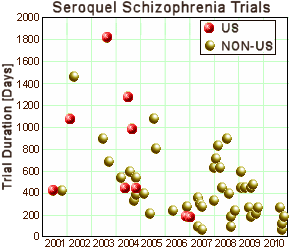New Scientistby Laasya Sahmita17 October 2013"Foreign companies are treating India as a heaven for clinical trials, but it is proving hell for India." So said an Indian Supreme Court judge on 30 September as he pressed the pause button on the country’s clinical trials, ruling that all drug trials must be halted for two weeks. That period is now up, but there is no sign of the ban being lifted.
In recent years, India has emerged as the destination of choice for foreign companies looking to conduct clinical trials, attracted by low costs and access to a large pool of research participants. But while the companies reap the rewards, the Indian people enrolled in the trials may be paying the price. In March, the Indian health minister Ghulam Nabi Azad testified in the Rajya Sabha, the upper house of parliament, that The government has found that between 2005 and 2012, over 2868 deaths were recorded during government-approved clinical trials of new drugs, 89 of which have been directly linked to the trials.
To put this in context, Ken Getz, founder of the Centre for Information and Study of Clinical Research Participation in Boston says the global risk of dying in a clinical trial is 1 in 10,000. In India, the risk in 2011 was an order of magnitude higher. The Supreme Court’s ruling, which halted 162 clinical trials, was triggered by a parliamentary report published last month. It investigated trials of two human papillomavirus (HPV) vaccines conducted in 2009 and 2010 by the US-based non-profit organisation PATH, together with the Indian Council for Medical Research (ICMR) and drug companies Merck and GSK.
The trials involved around 20,000 girls aged between 10 and 14. The report noted that seven of them died and that there was no proper system for keeping track of side effects. It also found that parental consent forms were often inadequately completed, and that the information given out to participants implied that they were being immunised as part of a national programme rather than a clinical trial. Ajay Gambhir from the website vaccineindia.org, which provides unbiased advice to Indian citizens on immunisation, says that the HPV vaccine case is an all too common story in drug trials in India.
The government is trying to make things better. In March, it ruled that all clinical trials have to be approved by an independent ethics committee, as opposed to a panel set up by the drug company as was previously the case. The new regulations also require the body conducting the trial to bear full responsibility for any injury or death that is shown to be a direct result of the trial. This has come as an unwelcome move to many foreign drug firms who fear they may now be liable for the long-term healthcare of their trial participants. A spokesperson for Biocon, one of India’s largest biotechnology companies, says the new regulations could lead to a situation where "global pharma innovators are bypassing India and shifting to other South-East Asian countries".
This fear isn’t entirely unfounded. Since the new regulations were announced, the US National Institutes of Health has suspended more than 40 clinical trials in India, as have several US and Canadian companies. The rules are still being discussed and may be watered down when they are debated again in India’s parliament later this year. While the changes are a must to reposition India as the preferred destination for clinical trials, says Hitesh Sharma of industry analysts Ernst and Young in India, the near- to mid-term outlook for the industry looks bleak as it undergoes changes. However, he says: "The efforts will take some time to have an effect on the industry; but long term, the outlook still looks positive for Indian clinical trial industry". Soumya Swaminathan, director of the National Institute for Research in Tuberculosis in Chennai, agrees that the difficulties clouding Indian clinical trials are a temporary phase. "This whole year has been a learning experience for the Indian clinical trial scene. I think it will end with a positive change leading to better volunteer protection and a resumption of trials" she says.hat tip to pharmagossip

Dear Mickey. I think you should, in you blogging career, restrict yourself to just facile soundbites. No-one today has the patience to read through your long intelligent and relevant posts if it takes more than a minute. Hopefully this sound advice will increase the number of comments you get.
And I do hesitate to say ‘you must expand your readership by being very simple’ but on this occasion I will. But I thank you for not bowing down to mass appeal. I, for one, love the deep dark depth of your thinking. (sorry … been on the whisky tonight)
‘And the trial sponsors are pulling out of India.’ Why do you think that is? Is it getting too expensive? Where will they go to next?
India is also the number one labor force for what is called “surrogate mothers,” who are in fact surrogate pods for wealthy women who can’t or don’t want to go through pregnancy. The way these poor women are treated is abominable.
It’s about time that people in the Indian government put a stop to this. It would be great if they could be the torchbearers for a global movement.
There is a growing presence of drug companies testing in S. America where illiterate women are being told they need to sign off on new medications for their children, all the while they are being used for drug testing.
This is abuse plain and simple.
Steve Lucas